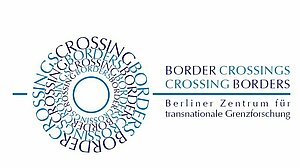#30PostSovietYears | Forgotten Diversity?
Reading and discussion
After the collapse of the Soviet Union and Yugoslavia in the 1990s, new states with new social and political orders emerged. The disintegration of these two multi-ethnic states and the emergence of new independent countries sparked wars, protracted conflicts, and disputes over borderlines and allegiances. Post-Soviet and post-Yugoslav literature revolves around experiences and practices of separating and relocating individuals and societies. Authors show how attributions that previously played a minor role acquire existential significance and how people who refuse to be categorised or defined by others become figures of suspicion on both sides of a border. Together talked about experiences and expectations with regard to how linguistic, ethnic and religious diversity is handled on the margins of Europe.
Participants
- Andrij Kurkov is a Russian-speaking writer from Ukraine. In his novel Grey Bees, he examines questions of belonging and separation from the perspective of a resident of the grey zone on the contact line to the breakaway republics in Eastern Ukraine. From here, Kurkov’s protagonist takes his bees on a journey into Ukraine and Crimea.
- Lana Bastašić was born in Zagreb (Croatia), grew up in Banja Luka (Bosnia), and studied there and in Belgrade (Serbia). She was awarded the 2020 European Union Prize for Literature for her first novel Uhvati zeca (Catch the Rabbit). The book follows two young women on a road trip through Bosnia, back to the place of their childhood and youth, where they relive the experience of nationalist segregation.
- Nenad Stefanov is a historian and scientific coordinator of the interdisciplinary centre Crossing Borders at the Humboldt-Universität zu Berlin. A key focus of his research is the social production of borders.
- Sabine von Löwis is a researcher at ZOiS.
- Chair: Nina Frieß is a researcher at ZOiS.
#30PostSovietYears
Taking #30PostSovietYears as its theme for 2021, the Centre for East European and International Studies (ZOiS), in cooperation with the Körber Foundation, the German Association for East European Studies (DGO), the German Historical Institute Moscow, the Friedrich Ebert Foundation in Russia and Memorial International, is hosting a series of events and online formats that revisit the watershed year of 1991 and examine the legacies of the Soviet era.
READ MORE

The event takes place in cooperation with the Competence Center Crossing Borders at Humboldt Universität zu Berlin.
The event is part of the series ZOiS Forum that brings together academic, artistic, and political perspectives on the issues driving Eastern Europe today.
